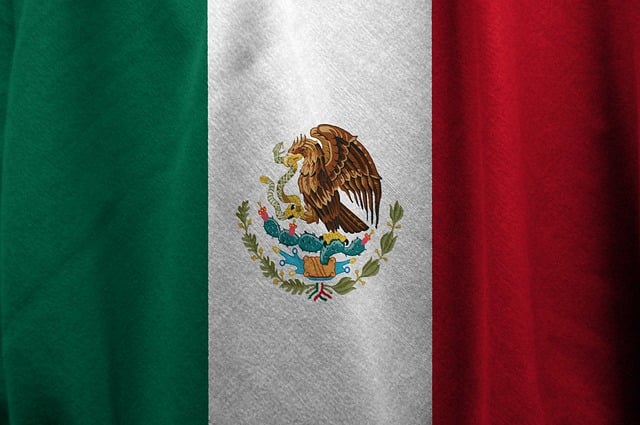The American Ultimate Ultimate Flags skull, a powerful symbol with roots in America's rebellious history, represents freedom, resistance, and identity across diverse subcultures. Its versatility allows individuals to express individualism, challenge authority, and evoke strong emotions, making it a multifaceted cultural icon. Legally protected as free expression, its interpretations range from rebellion against oppressive regimes to youth rebellion and subcultural defiance. In modern times, the American Flag skull continues to inspire art, fashion, and social movements, symbolizing strength, loss, and defiance while navigating today's social climate.
The American Flag skull symbol, a powerful image that evokes strong emotions, has transcended its historical roots to become an iconic representation of strength and defiance. This article delves into the multifaceted symbolism behind this striking icon. We explore its historical context within American culture, unraveling its psychological impact on individuals and society. From artistic representations in popular culture to legal and political interpretations worldwide, we analyze its global significance and varying cultural meanings across demographics. Finally, we investigate its modern usage, revealing its enduring relevance in contemporary discourse.
- The Historical Context of the American Flag Skull Symbol
- Understanding the Psychological Impact of This Iconic Image
- Analysis of Artistic Representations in Popular Culture
- Legal and Political Interpretations: A Global Perspective
- Cultural Significance Across Different Demographic Groups
- Exploring Modern Usage and Its Relevance Today
The Historical Context of the American Flag Skull Symbol

The American Flag skull symbol has a deep historical context rooted in the rebellious spirit of early American culture. This iconic image emerged during times of political and social unrest, reflecting a desire for freedom and resistance against oppressive forces. It became a powerful emblem during the American Revolution, symbolizing the courage and resilience of those fighting for independence from British rule. The combination of the flag—a universal symbol of nation and unity—with the skull, representing death and defiance, conveyed a strong message of defiance and the willingness to sacrifice for freedom.
Over time, this symbol has been embraced by various subcultures and movements, each interpreting it in their own way. From pirates and bikers to modern-day protest groups, the American Flag skull has come to represent not only rebellion but also identity, camaraderie, and a sense of belonging. Its enduring appeal lies in its versatility and ability to evoke strong emotions, making it a versatile tool for expressing individualism and challenging authority.
Understanding the Psychological Impact of This Iconic Image

The iconic image of an American Flag skull has become a powerful symbol, evoking deep emotions and sparking conversations about strength, loss, and defiance. This striking visual represents more than just a macabre design; it taps into the psyche of individuals, creating a profound impact that resonates on both personal and societal levels. The psychological implications of this image are diverse and complex.
On an individual level, the American Flag skull can serve as a source of comfort or inspiration. For some, it represents resilience and the unyielding spirit of Americans, especially in times of hardship. It may evoke feelings of pride and patriotism, reminding people of their shared history and values. Conversely, others might find it disturbing, triggering emotions related to loss, death, and the fragility of life. This dual nature highlights the powerful ability of art—a single image can simultaneously inspire and disturb, leaving viewers with a lasting impression that challenges and captivates them.
Analysis of Artistic Representations in Popular Culture

In popular culture, the artistic representation of an American Flag skull has emerged as a powerful symbol of strength and defiance. This unique fusion of national iconography with skeletal aesthetics captures a complex blend of emotions—from patriotic pride to rebellious anger. Such imagery often appears in various forms, from street art and tattoos to merchandise and film propaganda, reflecting a subcultural sentiment of non-conformity and challenging societal norms.
These artistic renditions often employ striking visuals, combining the bold red, white, and blue hues of the American Flag with the haunting bone structure of a skull. This juxtaposition serves as a metaphor for the contradictions inherent in society, inviting viewers to question concepts of identity, freedom, and resistance. The American Flag skull has become a symbol of rebellion against oppressive systems, embodying the spirit of defiance that resonates deeply with marginalized communities.
Legal and Political Interpretations: A Global Perspective

The iconic image of an American Flag with a skull, often referred to as the “Skull and Bones” symbol, has sparked various interpretations globally. From a legal standpoint, this emblem is seen as a representation of freedom of expression and artistic creativity. Many countries uphold the right to display such symbols, especially when they are not inciting violence or promoting illegal activities. The skull, a universal symbol of mortality, combined with the American Flag, can be interpreted as a commentary on the human condition and the fragility of life, which is protected by the flag.
On the political front, the American Flag skull has been a subject of debate, particularly in regions with differing historical and cultural contexts. Some view it as a powerful symbol of rebellion against oppressive regimes, reflecting the spirit of resistance found in many national flags. However, critics argue that its use can be controversial, especially when associated with extremist groups or used to promote hate speech. This global perspective highlights the multifaceted nature of symbolism, where one icon can carry vastly different meanings across cultures.
Cultural Significance Across Different Demographic Groups

The American Flag skull, a striking and provocative image, holds immense cultural significance across diverse demographic groups in America. This symbol transcends age, race, and social strata to embody a powerful message of strength and defiance. For many Americans, it represents the nation’s founding principles of liberty and freedom, especially as a reactionary symbol against perceived threats to these ideals. Among younger generations, the American Flag skull often serves as a statement against societal norms and a call for individualism and rebellion.
In various subcultures, such as biker gangs or heavy metal communities, this image takes on an additional layer of symbolism. It becomes a badge of identity, expressing resistance to authority and a rejection of mainstream values. The juxtaposition of the iconic American Flag with a skull challenges societal norms, making it a versatile symbol that resonates differently depending on one’s perspective and personal experiences.
Exploring Modern Usage and Its Relevance Today

The modern interpretation of the American Flag skull design taps into a powerful symbol of strength and defiance, resonating with contemporary audiences in unique ways. This contemporary usage goes beyond its historical roots, reflecting a broader cultural shift towards embracing symbols that defy societal norms and conventions. The fusion of the iconic American flag with a skull motif has become a statement piece, often used to express individualism, rebellion, and resistance against oppressive systems.
In today’s social climate, where issues of freedom, equality, and justice are continually at the forefront, the American Flag skull serves as a multifaceted symbol. It can be seen as a call to action, encouraging people to challenge authority and speak out against injustices. This powerful imagery has permeated various art forms, fashion, and social movements, proving its relevance in contemporary culture as a dynamic and thought-provoking representation of defiant spirit.
